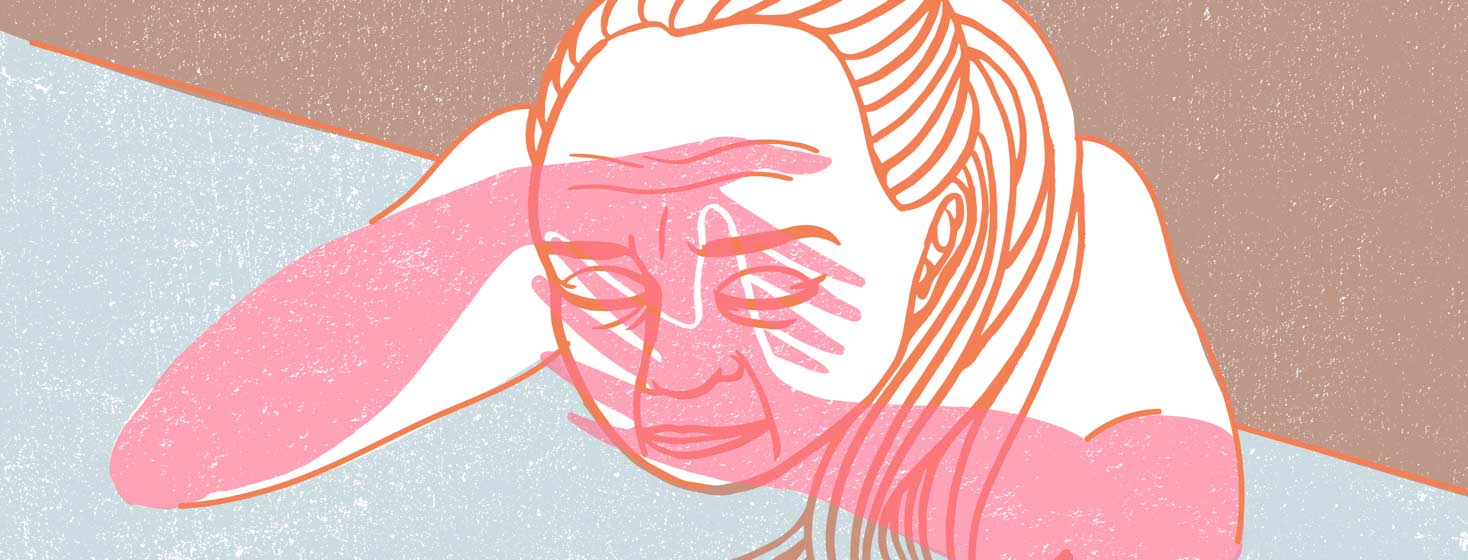Are Anxiety And Depression Connected To Asthma Control?
Asthma is a complex, chronic illness that can affect both the body and the mind. Coughing, shortness of breath, and wheezing are common physical symptoms. Although they are less noticeable symptoms, anxiety and depression often happen with asthma too.
The link anxiety, depression, and asthma control
Research shows that anxiety and depression are common in people with asthma. Anxiety and depression are comorbid conditions. That means they occur along with asthma.1-3
There is still much to learn about the connection between asthma and mental disorders. However, several studies have shown that people with uncontrolled asthma have higher rates of anxiety and depression.1-3
Nearly 30 percent of the 1,025 people with asthma who completed the Asthma In America 2020 Survey said they have depression. About 27 percent said their asthma worsens their depression. About 13 percent of survey respondents said their depression is partially due to their asthma, while 4 percent said their depression is largely due to their asthma.
One study conducted in 2015 examined the impact of anxiety and depression in a group of people with asthma. The study found that anxiety and/or depression affected the majority of people who participated. Nearly 37 percent had anxiety, 11 percent had depression, and 27 experienced both anxiety and depression.1
What is uncontrolled asthma?
While people may define asthma control in their own way, the Global Initiative for Asthma (GINA) measures control of asthma based on 4 factors:4
- Symptoms during the day 2 or more times a week
- The use of certain drugs 2 or more times a week to ease symptoms
- Activity is limited by asthma
- Waking at night due to asthma symptoms
The level of asthma control is determined by the number of these factors that a person experiences in the most recent 4-week timeframe. If 1 or 2 factors exist, asthma is defined as partly controlled. If 3 or 4 factors exist, asthma is defined as uncontrolled. None of these factors are present in well-controlled asthma.4
What are the risks for uncontrolled asthma?
Several studies have found that people with uncontrolled asthma have other risk factors besides anxiety and depression. These include things like age, gender, and weight. Uncontrolled asthma was more common in people 65 and over, women, and those with higher body mass indexes. People with uncontrolled asthma also used healthcare services more.1,2
Signs and symptoms of anxiety and depression
Even though anxiety and depression are mental disorders, they still have symptoms like physical illnesses do.
Some of the signs and symptoms of anxiety include:5
- Consuming fear
- Excessive worry
- Feeling constantly stressed
- Physical reactions like heart racing, nausea, and shaking
Something specific like an object, person, or place can trigger anxiety. People can also have general anxiety that they feel much of the time.5
Some of the signs and symptoms of depression include:5
- Fatigue
- Feeling guilty, hopeless, or worthless
- Loss of interest and joy in normal activities
- Feeling moody or sad
- Sleeping too little or too much
- Trouble focusing
- Thoughts of self harm
- Weight gain or loss
People with depression usually have 5 or more of these symptoms for 2 weeks straight.5
How to improve anxiety and depression along with asthma
Taking steps to care for your physical and mental health can help improve anxiety, depression, and asthma. Since the conditions are connected, improving the symptoms of 1 condition usually leads to an improvement in the other. This means that better asthma control can lessen anxiety and depression, and vice versa.2,3
Talk to the right healthcare professional
A first step would be to see your doctor regularly. They can help you find the best course of treatment to manage your asthma and any other conditions you may have. Doctors can also prescribe needed drugs.2,3,5
If mental health is not a focus at your doctor visits, a next step would be to see a counselor or other mental health specialist. They can detect anxiety and depression and suggest healthy ways to address the causes and symptoms. They may offer cognitive behavioral therapy, mindfulness and relaxation techniques, and other special therapies.5
Find support
Identifying a support network is another good step. This network may include family, friends, and mentors. Writing down their names and numbers in advance can make it easier to contact them in times of need.5
Build a healthy lifestyle
You can also take many other steps to maintain a healthy lifestyle. This can lead to better control of your asthma and reduced symptoms of anxiety and depression. These include making dietary changes, exercising more, and getting plenty of sleep. Engaging in enjoyable hobbies and work (paid or volunteer) can also help.5
Having asthma can be physically and mentally tough. However, you can take steps to improve asthma and the anxiety and depression tied in with it. Doctors can help by guiding you on how to best care for your body and mind.
Do you experience anxiety and/or depression along with your asthma? Share your experience with us.

Join the conversation